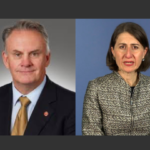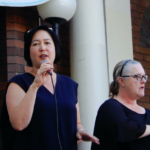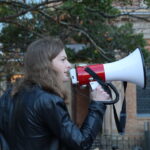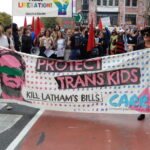NSW Needs Less One Nation Representation in Parliament, Not More
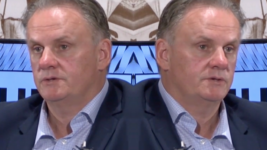
One Nation NSW leader Mark Latham is currently halfway through his eight-year term as a member of the NSW Legislative Council. And as there’s a state election next March, he’s considering quitting his position in an elaborate scheme to get more One Nation seats in the state’s upper house.
Currently, he and fellow white nationalist MLC Rod Roberts hold seats for Pauline Hanson’s party in the NSW Legislative Council. But if Latham quits, it means One Nation automatically gets to choose another party member to take over his role for the rest of its term, and he will then recontest.
Latham considers if he heads up the NSW election One Nation ticket, it will ensure that he gets voted back into the upper house and it will also encourage enough further votes to gain an additional seat, meaning the antimigrant and anti-Muslim party will hold four upper house seats.
Former counsel assisting the ICAC, Geoffrey Watson SC told Crickey that Latham’s plan is likely legal but “does involve a rather cynical manipulation of electoral laws”.
Although, ethical issues aren’t often a major concern for politicians whose policy platforms reflect society’s most hateful attitudes. And the legalities of Latham’s plan aren’t really the main issue either.
Rather, what is of concern is that NSW doesn’t need any more politicians that adhere to Latham’s creed in its place of lawmaking.
The Coalition favours One Nation
The NSW Liberal Nationals are presumably quietly thinking that Latham’s plan to get more seats in parliament will be of benefit to them, as One Nation’s extreme right position has always been favourable because it serves to make the Coalition’s policies appear moderate in comparison.
But over the last NSW term, One Nation has formed something of an unholy alliance with the Coalition, which has involved Latham introducing divisive legislation, that seems to be all about attempting to re-establish 1950s Australian mainstream values, which the government then backs.
Latham introduced legislation that aimed at lifting bans on uranium mining and new nuclear power stations, and instead of being laughed out of the chamber, it was sent to inquiry, with the top heavy Coalition committee conducting the review determining to support the One Nation reforms.
The former leader of federal Labor then introduced a private members bill, which sought to uphold the rights of Christian heterosexuals so as to trump those of all others, under the guise of religious antidiscrimination laws, and again the committee of inquiry endorsed this.
Then Latham’s third private members bill introduced in August 2020 was designed to erase the identity of trans and gender diverse kids from the education system via the threat of sacking any staff that might discuss the subject, even counsellors. And again an inquiry supported these laws.
Thankfully, none of these bills have been progressed. And the failure of former PM Scott Morrison’s religious freedoms crusade means they’ve at least been put on hold. But what the debate around them did achieve was the empowerment of hateful and prejudicial attitudes in the public square.
The cause of the crises
Recently, there has been a rise in white supremacist groups in Australia. As of November last year, ASIO reported that 50 percent of its terror investigations are now concentrated on far-right groups. And this was a rise from one-third two years prior, which was already a stark change in focus.
“One Nation runs on a broadly populist and protectionist platform and is against globalisation,” US thinktank GPAHE recently reported. “It promises to drastically reduce immigration and to abolish ‘divisive and discriminatory policies… attached to Aboriginal and multicultural affairs’.”
Politicians like Mark Latham and Pauline Hanson rise to the top by making prejudicial comments that hearken back to a white supremacist attitude that used to reign supreme in this country and continues to tickle the fancy of racists trying to hold onto a fictional golden age in the past.
In a time of multiple crises escalating with unexpected haste, however, what our state and nation needs are politicians that represent a progressive and inclusive way forward that embraces diversity and rejects the old power structures created by rich heterosexual white men.
And a growing number of the constituency are in agreement with this, hence the turning away from the majors at the May federal election, a phenomenon later dubbed the greenslide, which saw many more voters turning to the Greens and teal independents.
Indeed, it’s Latham and his ilk that led our society down the troubled path it’s found itself in. And more One Nation representation in NSW parliament actually spells greater hardship and division for the majority, including Latham’s supporters: white individuals with rednecks.



